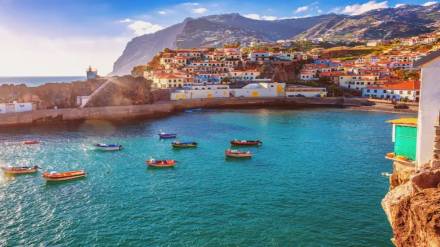In an effort to draw in foreign capital and specialized business and entrepreneurial talent, Indonesia is working hard to significantly change its immigration laws. Portugal’s Golden Visa program has undergone extensive modification to enable foreign investment to become a force for sustainability, rural redevelopment, and economic progress.
Real estate investment was previously the preferred strategy; however, a sharp rise in property values caused the government to abandon property purchasing and overhaul the nation’s Golden Visa program.
In an interview with Financialexpress Online, Pela Terra, founder Alex Lawry-White shares key insights into the Portugal Golden Visa program. Excerpts:
Is the Portugal Golden Visa program ending soon?
Eventually, yes. But not in the short term.
The prime minister originally announced that they would close the program in 2023, but in the end, they only reformed it. All real estate investment is now excluded from the program. Other stable investments, such as investing in agriculture and farmland, are still allowed.
However, the terms of Portugal’s golden visa (only need to be in Portugal for 7 days per year, and able to apply for citizenship after only 5 years) are, frankly, too good to be true compared to other European union countries (which usually require 8-10 years and require investors to be present in the country for 183 days per year). So, this program will not last forever. Investors probably have 1-2 more years to get in before the EU applies pressure on the Portuguese government to close it altogether.
What are the proposed changes in the Portugal Golden Visa program?
They are not proposed. They are confirmed. The changes are: real estate investments are now banned, both through “direct acquisition” and by investing in funds that then invest in real estate. Funds, like Pela Terra, which invest in other industries, like sustainable agriculture, are free to continue.
Will investing in real estate not be an option in the new Portugal Golden Visa program?
It is confirmed that real estate is no longer an option.
What will be the options left for foreigners to get a Portugal Golden Visa?
Foreigners can now only invest in non-real estate funds. Most of these are quite high risk, although there are a small number of products, like Pela Terra, which continue to offer very low-risk products which are well sculpted to the requirements of Golden Visa investors – focusing on risk minimisation and yearly payouts of a consistent annual yield.
How much capital is required to get a Portugal Golden Visa?
One has to invest €500,000 to get a Portugal Golden Visa.
What are the benefits of the ‘citizenship by investment’ program of Portugal?
The benefits are huge. The Portuguese program leads investors to access, in only 5 years, the 4th most powerful passport in the world. Holders of this passport can visit 188 countries, visa-free There are 195 countries in the world, so the holders of this passport are incredibly free – the globe is open to them.
Not only this, but partners, children and dependent parents can be included on the Main Applicant’s visa. And citizenship is inherited by all future generations. So by investing €500,000 (which should be a profitable investment), an applicant can unlock the globe for themselves and for many generations of descendants. An incredible gift to future generations.
Relative to other countries, Portugal’s program is unrivaled in terms of how easy it is to access (short time of only 5 years; very soft requirements of only needing to be in the country for 7 day per year)
Other benefits of residency in Portugal include free healthcare, free education through university, stable politics, transparent courts systems, access to the European financial markets; tariff-free commercial access to the biggest trading block in the world (the EU); clean air, smog-free cities; 300 days of sunshine every year; 800 km of beautiful coast line every year; incredible local wines Mediterranean diet, the list goes on…
What is unique about investing in farmland and does it qualify for the ‘citizenship by investment’ program of Portugal?
Farmland in Europe is one of the world’s most stable asset classes. It has lower volatility ratings than US government bonds. In terms of searching for an asset that you can trust to protect your initial capital, it doesn’t get any better.
Throughout the financial crisis, the COVID-19 pandemic, and the Russia-Ukraine crisis, the price of farmland has not gone down. Why is this? Because unlike almost every other investment, under any economic conditions people will continue to buy food! And so, the asset required to produce that food will always be something that investors need to hold.
Because it underpins agricultural activity, a decent annual yield is also made possible by farmland.
Because the investment is classified as “agriculture”, it doesn’t fall under the new and-real estate regulations. Agriculture is the only remaining Golden Visa area that still performs like real estate used to (very safe, predictable annual yield).
Any other information you wish to share with readers/investors
Pela Terra is the largest agricultural fund in Portugal. It was also the first. It is a brand no synonymous with safe investing, fiscal prudence and environmental responsibility.
Performance figures have been released for the first year of trading, and the fund is already up +15%.
Younger readers may be interested in the sustainability credentials of Pela Terra. We were the first sustainability-focused Golden Visa fund. Our mission is focused on regenerating soil health, with a focus on boosting biodiversity, minimising water and chemical usage, protecting the soil and producing nutrient-rich food.
